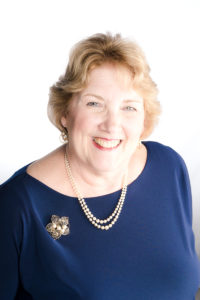Humanist EDge: “Wasn’t I the Lucky One?” Memories of a Humanist Institute Graduate

It’s been thirty-three years since I first stepped into the New York Society for Ethical Culture building on Central Park West and Sixty-Fourth Street. I had no idea on that day how joining the first class of The Humanist Institute (THI), which was something of an experiment at that point, would change my life.
In 1984 I was working as Rabbi Sherwin Wine’s administrative assistant at the Birmingham Temple in Michigan, where my husband and family had been members since 1971. During that thirteen-year span I went from a “fallen away” Catholic to an involved and active humanistic Jew. The transition had not been difficult—I had been a humanist for years, I just didn’t know that it had a name. The Judaism was Judaism without God and suited us just fine.
One day while typing something for Rabbi Wine that pertained to The Humanist Institute, I commented, “This new school sounds so fantastic—what an opportunity for these students.” Rabbi Wine insisted that I apply and was adamant that I attend. Little did he know that he was going to lose his administrative assistant because of this decision. But wasn’t I the lucky one?
I could write a book—and maybe I will someday—about the three amazing years I was a student at THI. I was probably the only one in the class who didn’t have a master’s degree, having just completed my undergrad as an adult student at Wayne University in Detroit. The Humanist Institute curriculum was difficult and challenging, and when we met to discuss the required reading, I did more listening than talking. Every session was stimulating and provocative—I loved every minute we were together. As I’ve heard over and over from the students who followed, a bonding takes places between the students in each class. We have shared something special and unique together.
The first THI class graduated in Pittsburgh in November 1986. It was a bittersweet event, and it was difficult to say goodbye to our mentors, professors, and fellow students. We were together for three years and formed close relationships. We knew we would miss the fun, the drama, and the hot debates. None of us really knew where we were headed, but we all knew we’d been well prepared to contribute to the world of humanism.
Ultimately, I traveled a road into humanist leadership and ministry. I spent ten months with the Rev. Dr. Kenneth Phifer as his ministerial intern at the Ann Arbor Unitarian Universalist Church in Ann Arbor, Michigan—a life-altering experience for me. In 1988 I was called to the Universalist Unitarian Church of Farmington, Michigan, as the first humanist leader/minister in their 150-year history. I served that congregation for nearly twelve years. In all, I served five UU congregations in and around the Detroit area for twenty-nine years, always as a humanist. I retired from congregational ministry in June 2015.
Did I know that attending The Humanist Institute would lead to a career in ministry? Not on your life. I thought it would be a wonderful learning experience, an adult education program that would enhance my understanding of the philosophy of humanism. Of course, it did all that but then some. The path of ministry is not for everyone, but I loved every day of my twenty-nine years. Everyone in that first THI class went on to “do humanism” in different ways, contributing greatly to humanism and the humanist philosophy.
Would I recommend attending The Humanist Institute? You bet. THI has evolved over the last thirty years—when we attended there was no such thing as the Internet. Today, THI uses the most modern technology to meet the needs of a twenty-first century student. A person of any age will find the experience life changing. Indeed, there is no other program that offers this unique opportunity for humanists. Whether you just want to hone your skills as a “voice” for humanism in your community, or you wish to pursue a professional career as a humanist leader, The Humanist Institute will prepare you.
In my retirement I’m proving the old adage true: “Humanists never die, they just start another group.” I recently opened the Center for Secular Humanism at the Birmingham Temple to provide meeting space for secular, atheist, and humanist organizations in the metro Detroit area. Check us out at centerforsecularhumanism.org.
